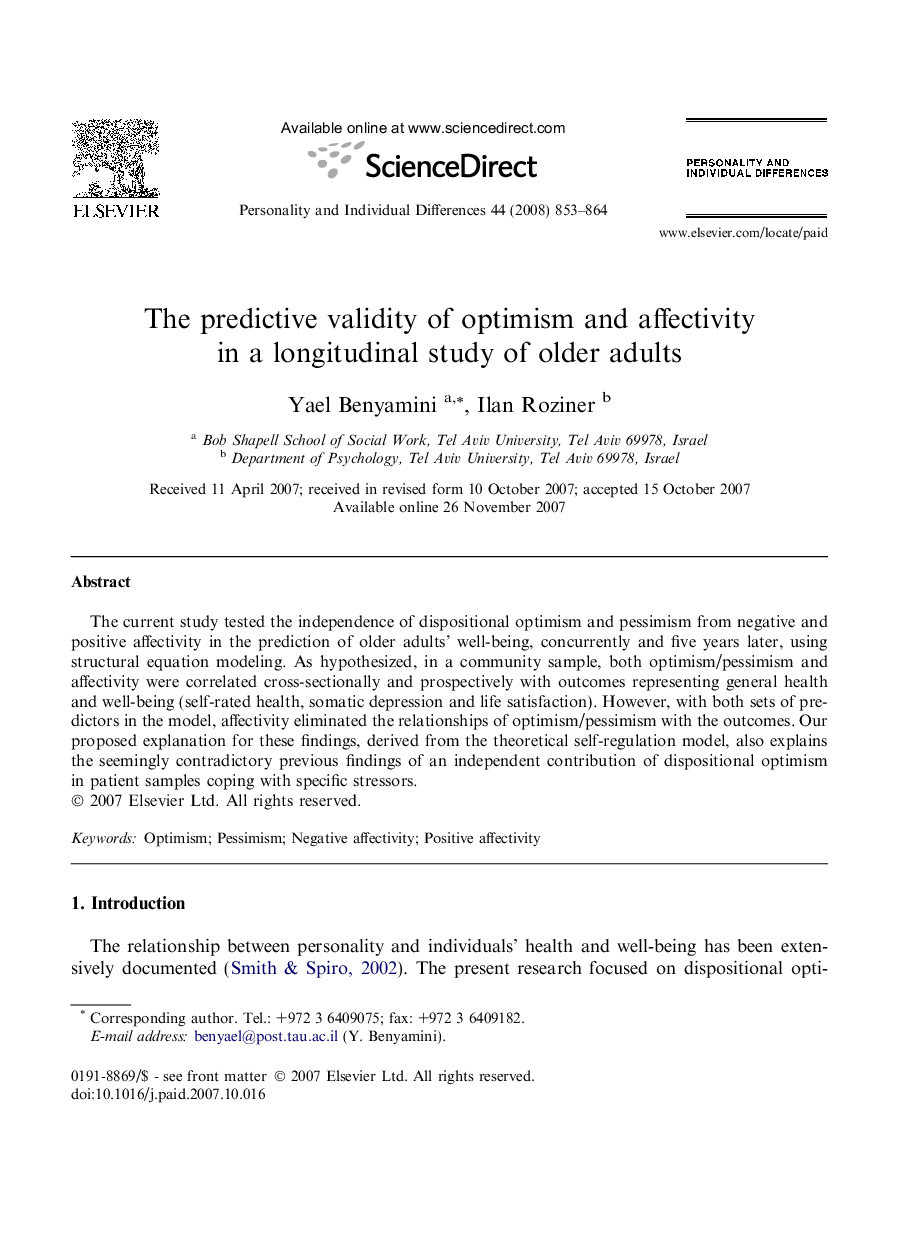| Article ID | Journal | Published Year | Pages | File Type |
|---|---|---|---|---|
| 892775 | Personality and Individual Differences | 2008 | 12 Pages |
The current study tested the independence of dispositional optimism and pessimism from negative and positive affectivity in the prediction of older adults’ well-being, concurrently and five years later, using structural equation modeling. As hypothesized, in a community sample, both optimism/pessimism and affectivity were correlated cross-sectionally and prospectively with outcomes representing general health and well-being (self-rated health, somatic depression and life satisfaction). However, with both sets of predictors in the model, affectivity eliminated the relationships of optimism/pessimism with the outcomes. Our proposed explanation for these findings, derived from the theoretical self-regulation model, also explains the seemingly contradictory previous findings of an independent contribution of dispositional optimism in patient samples coping with specific stressors.
